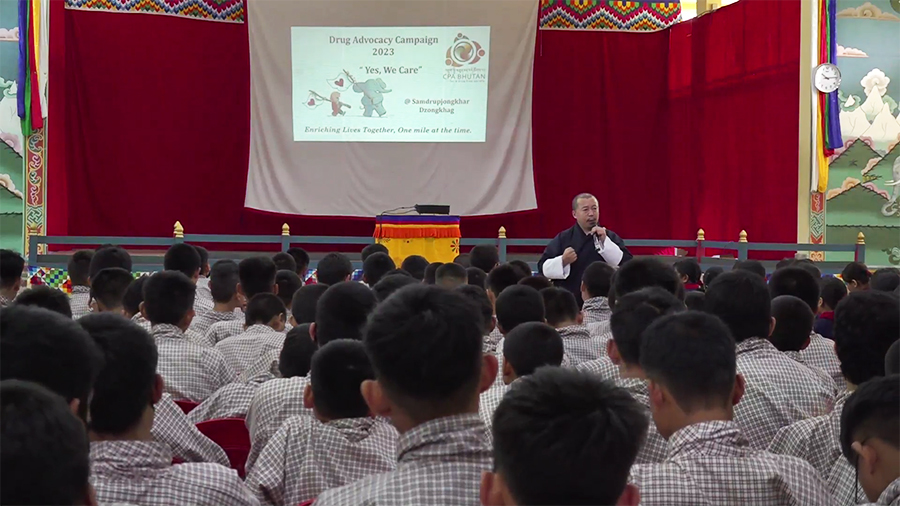
With More than 700 youth arrested last year for drug-related cases in the country, the highest number in the last five years, interventions to keep the youth away from drugs have become crucial. One of the interventions is sensitising young minds about the ill effects of substance abuse. That’s what the Chituen Phendhey Association is doing in Samdrup Jongkhar, a district which shares its borders with neighbouring Indian towns and is prone to smuggling of drugs.
With the theme “Yes, we care,” Chituen Phendhey Association started the advocacy programme on Friday with Samdrup Jongkhar Higher Secondary School and Samdrup Jongkhar Primary School. The advocacy programme will go on for a month in the district.
The campaign aims to bring parents, educators, community members, government officials, and stakeholders together to address the issue and support the younger generation.
“We will go to the community and give awareness to parents, shopkeepers and others. With the awareness, we are also seeking their support as it is everyone’s responsibility to come together and eliminate this long-standing drug problem,” said Tshewang Tenzin, the executive director of the Chithuen Phendhey Association.
The campaign also aims to foster dialogue, share knowledge and implement interventions to address the root causes of drug abuse, violence, and mental health issues in the community by educating risks of drug abuse.
“Youth are into substance abuse because of family problems and depression. Some youth also think that they look fashionably attractive when they abuse substances. That’s why I think they are into drugs. Smuggling drugs might be a source of income for some, so I feel there should be stricter laws,” said Rinzin Yoesel Dorji, a student, said Rinzin Yoesel, a student.
“Some youth take substance abuse due to family problems while some do it when their plan fails. I think we should support them rather than stigmatise them. We should provide support and help them,” said Thinley Yangzom, another student.
So far the advocacy programme has covered around 5,000 people including students, teachers and businesspeople among others.
Besides the programme, the CSO provides comprehensive guidance on prevention strategies and early intervention. It also fosters a supportive environment within the educational institutes.
Kinley Wangchuk, Samdrup Jongkhar
Edited by Kipchu







